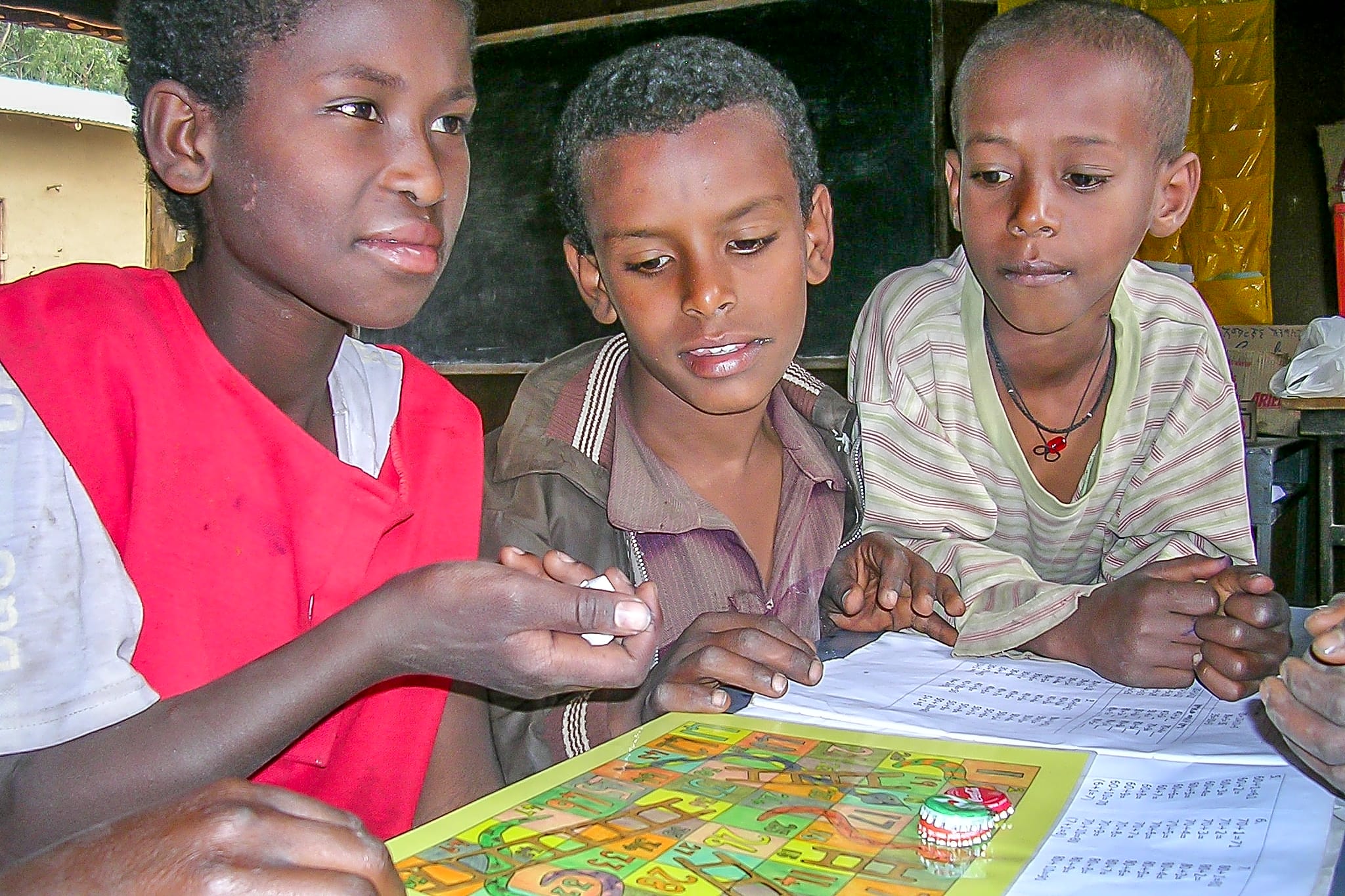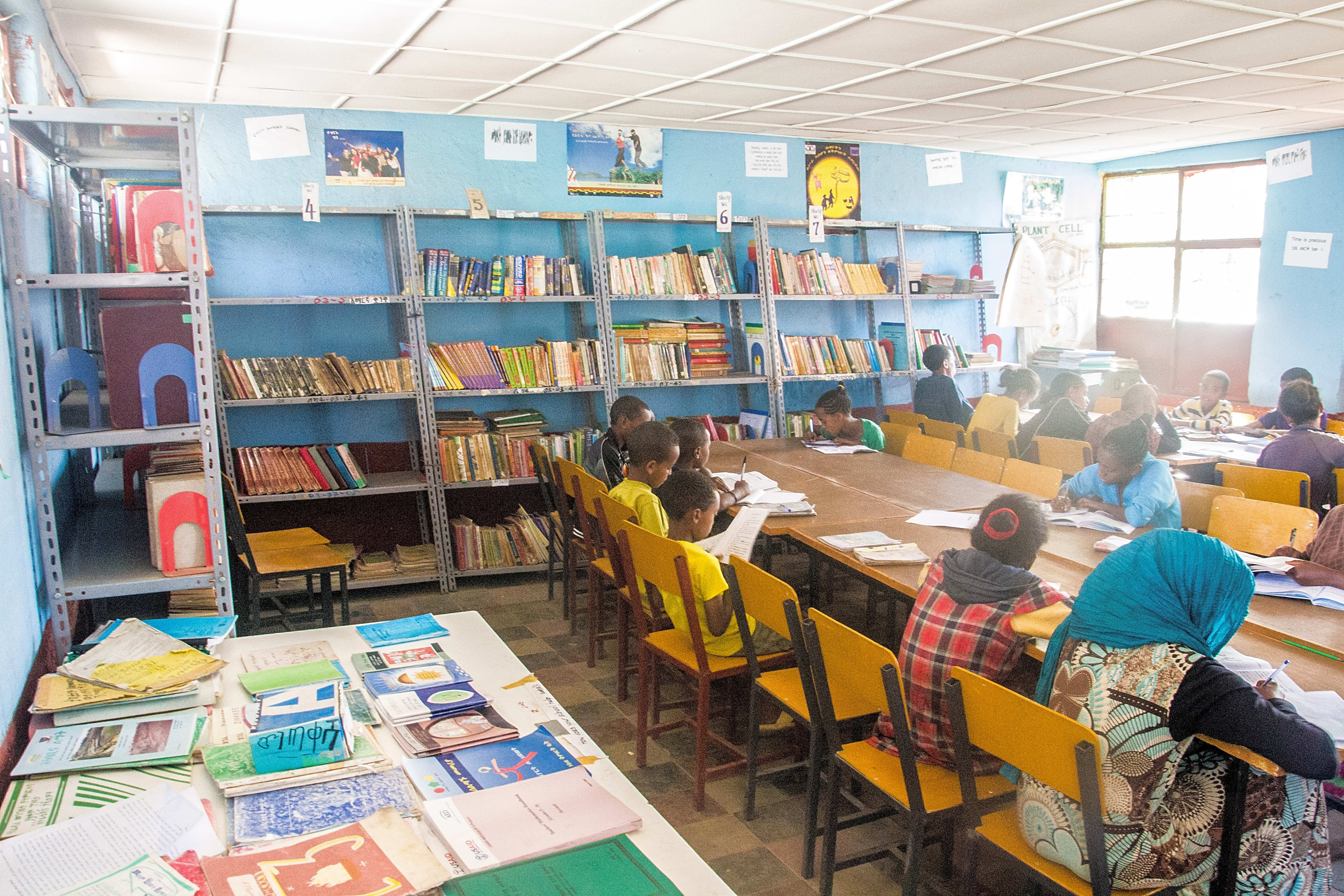To find out why we focus on education visit Why Education?
We believe that at the heart of any education system are teachers and schools, and we work directly with them and operate within the school system. Our relationships with teachers and school administrators helps us to build support for the changes that need to take place in schools in order for quality education to be accessible for all. This makes us ideally placed to support the concrete changes necessary if Ethiopian schools are to provide quality, learner-centred education to all children in their community.
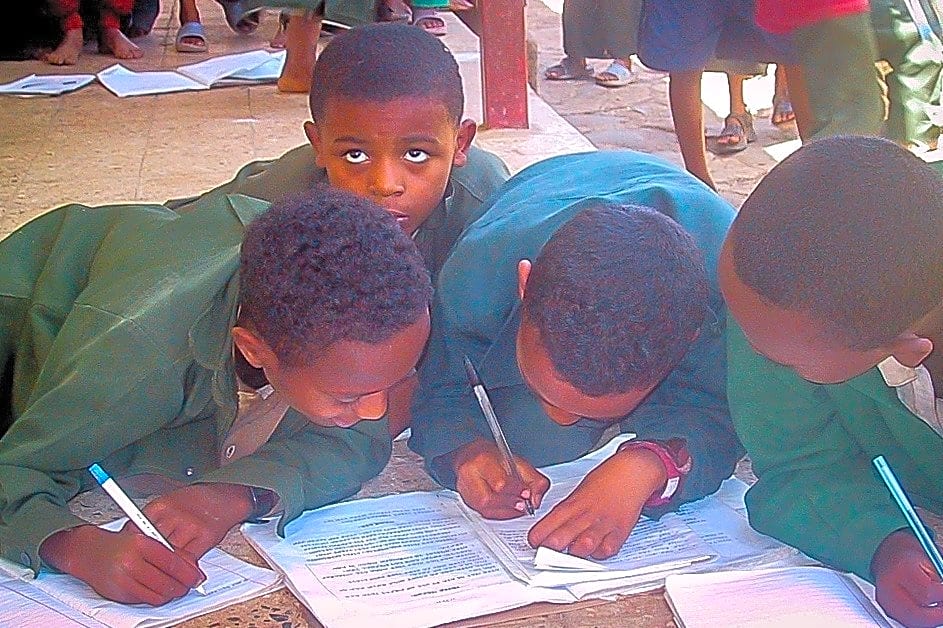
Community Led Education
Many organisations take top down approaches to reforming the education system, working at Addis Ministry level without any insight on the every-day experience of schools and teachers. This often results in seemingly progressive education policies that have little impact on the ground. By working directly with teachers, schools, students and parents we are well placed to identify the specific challenges faced by individual schools as well as broader cross-cutting issues within the regional and national education systems. This defines our community-led approach to education, where schools, teachers, students and parents identify their needs, and Link Ethiopia helps them to meet them.
Our presence in the schools also allows us to effectively monitor the results of our activities. We are able to get direct feedback from teachers and students on the effectiveness and challenges of different programmes and projects. Through our work we wish to promote the fact that strong education systems require input and participation of teachers, schools and students in the design and realisation of education reform.
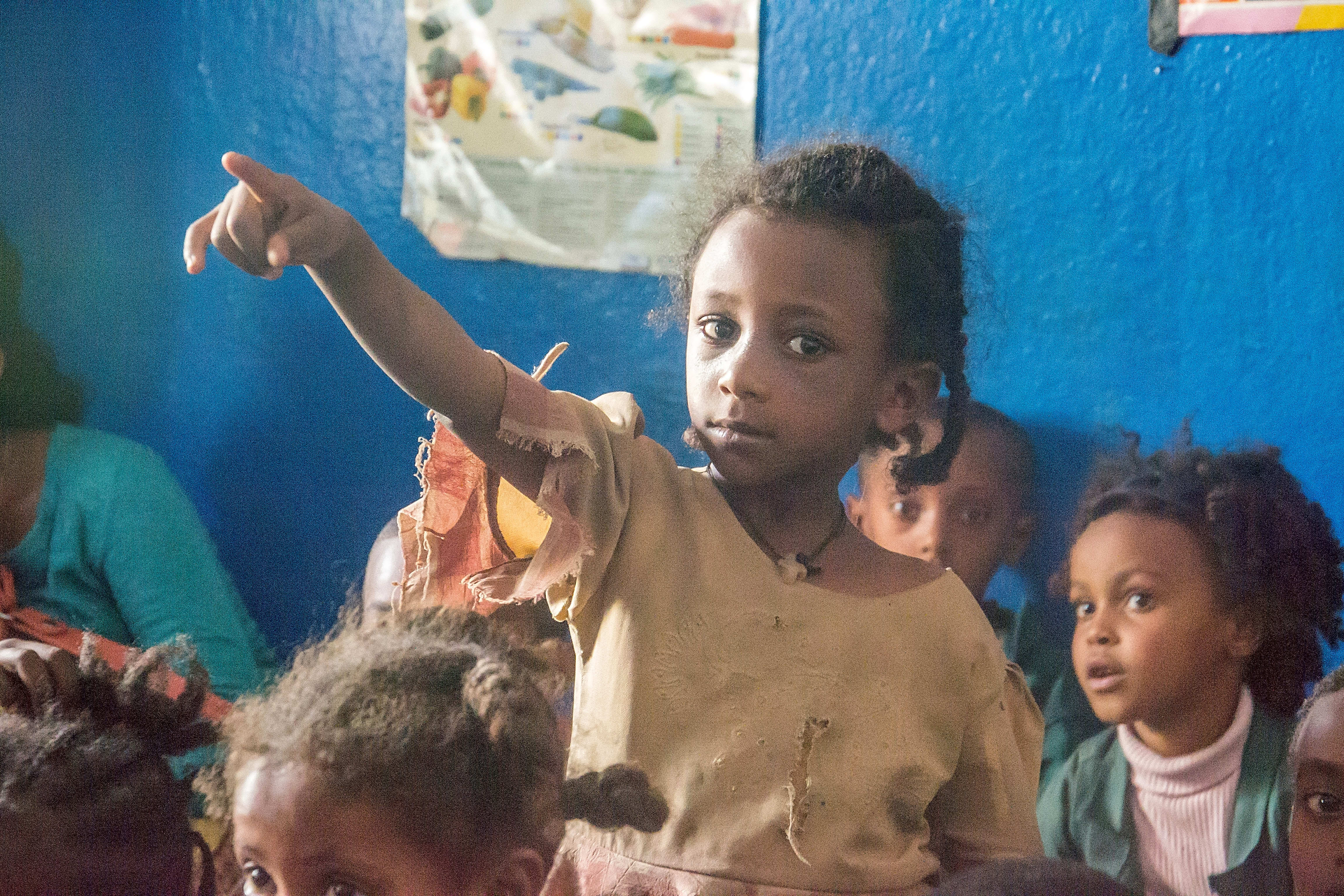
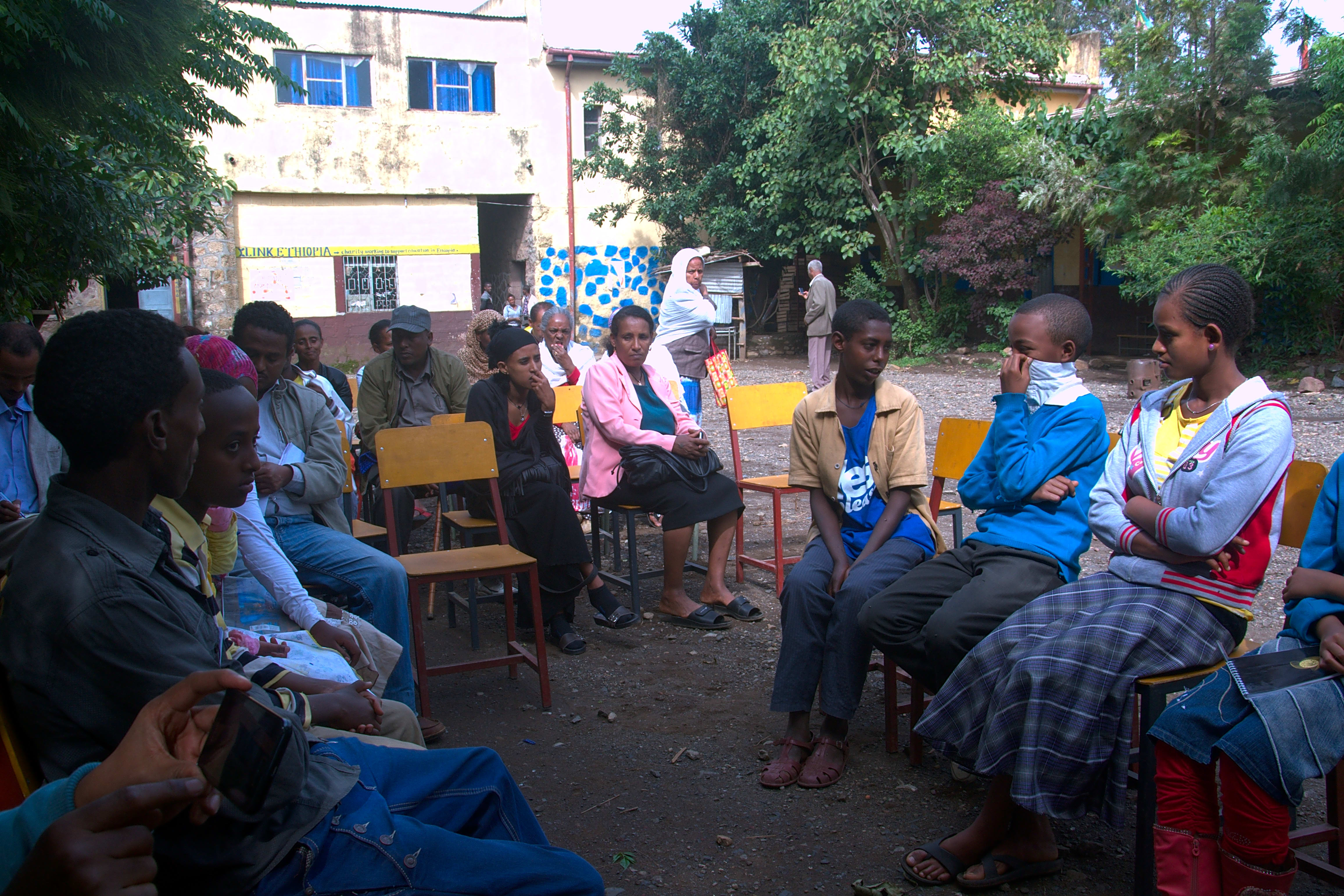
Our principles
At Link Ethiopia we are guided by three main principles that inform our work. We believe in access to education, ensuring that all groups of Ethiopian society receive an education; quality of education, by improving skills and resources in schools; and global learning through promoting cultural exchange in education. To deliver these outcomes to we run a range of complementary programmes so that all Ethiopian children receive the education that they deserve. Whilst all our work encapsulates these principles, some of programmes are more focussed on 1 or 2 of these areas.
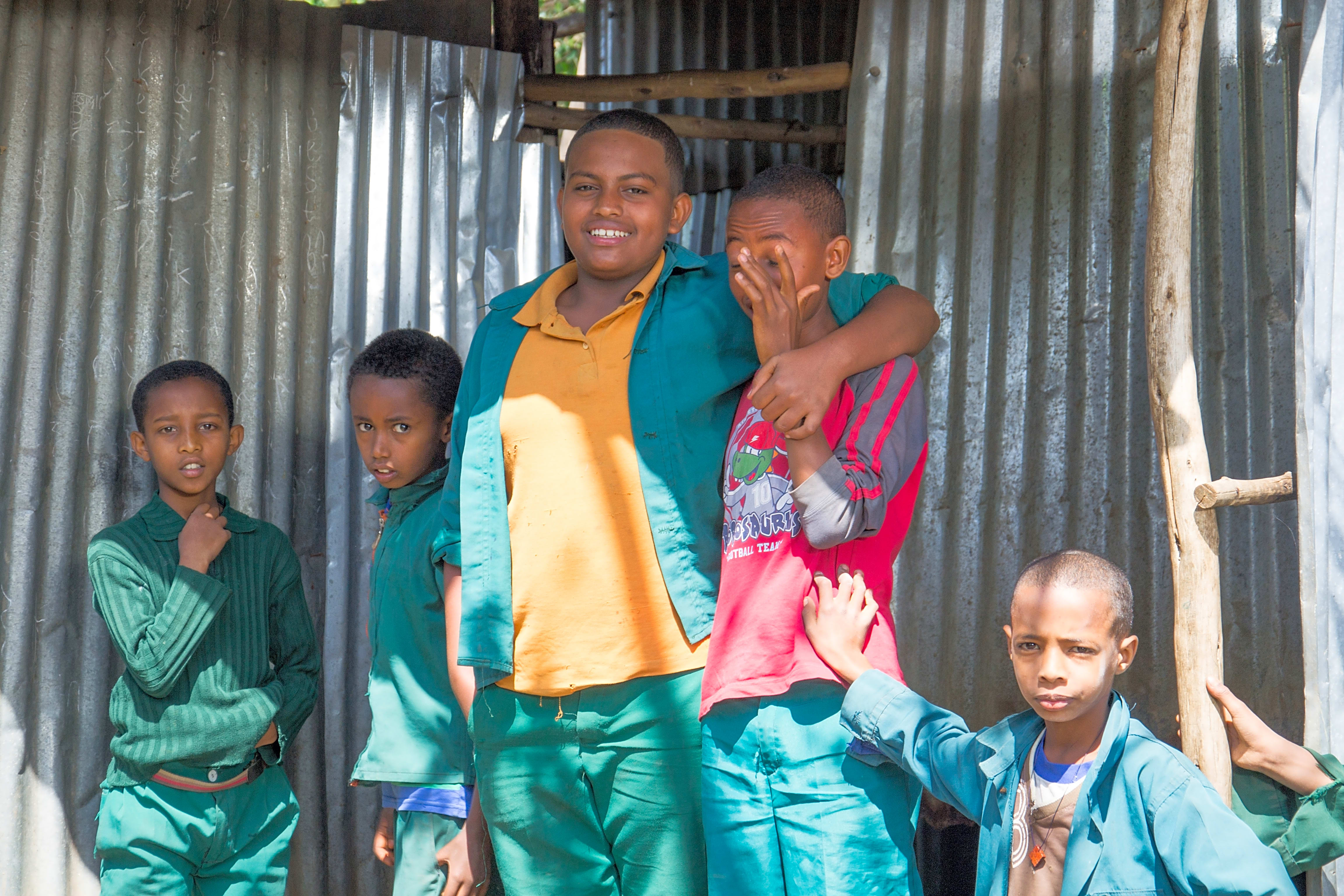
Access to education
The number of children unable to access education remains high. Since 2005, Ethiopia has seen an increase in year 1 primary school enrolment from 50% to 90%. But this success is misleading because there is an average dropout rate of about 15% per school year. By the end of primary education only 44% of children remain in school. By the end of upper secondary only 6% of children will have completed the full cycle of education.
![]() Poverty
Poverty
Despite the abolition of school fees in 2015, there are still costs associated with going to school, such as uniforms, books, stationery, and any earnings forgone through supporting the families economic activities such as farming. These costs affect the poorest children in Ethiopia, and often result in school dropout. Link Ethiopia schools identify the students most at risk of being forced to dropout from school, and we support them through our Child Sponsorship scheme.
![]() Girls’ Education
Girls’ Education
Girls in Ethiopia face far greater challenges in terms of access to education than their male counterparts. Whilst the gender gap is decreasing, and there are similar numbers of boys and girls in primary school, in secondary school and beyond there are more boys in the education system, and they academically out-perform girls. We are seeking to address the issues that girls face when transitioning to secondary school to build a positive cycle throughout their education.
Find out more![]() Disability
Disability
Children with disabilities are among the most under-served group in terms of education with only 5% able to attend school. This is because government schools generally lack the resources to offer the specialised education that is often required. Moreover, many children in mainstream education have unidentified disabilities that require support.We are supporting schools through training and resources to identify and provide for students with disabilities.
Find out more![]() Rural Excellence
Rural Excellence
84% of the population live in remote rural areas but only 16% of the schools in Ethiopia are in these communities. Many populations rely on poorly resources, non-government supported, community-based schools. These schools generally provide only 1-3 years of schooling and the standard of teaching is low. Even children who might have the financial ability to continue their education often face challenges keeping up in a regular school environment.
Find out moreQuality of Education
The quality of education in Ethiopia also has a major impact on children. Analysis of the Ethiopian school system shows that the curriculum is overloaded, schools are under resources and teachers lack training. As a result, many children struggle to even achieve basic literacy in both their mother tongue and in English. Thus at Link Ethiopia, we seek to ensure that not only do children attend school, but their experience at school is meaningful, valuable, and has a tangible impact on their lives.
Both access and quality of education are closely related. A child’s school performance is one of the biggest indicators of their ability to progress to higher grades. At the same time, if a child faces social and financial barriers to accessing education, their school performance will suffer. Therefore, it is not possible to tackle one issue without simultaneously tackling the other.
![]() Libraries and literacy
Libraries and literacy
This programme consists of two complementary projects, our library development scheme and our literacy improvement project, to promote reading and writing skills in Ethiopian schools. With our partner Jolly Learning our literacy project provides teachers with the skills to teach English phonetically, and our library development scheme trains librarians, and resources libraries to develop a culture of reading.
Find out more![]() WASH
WASH
The health of the teachers and students at a school make a massive difference to the quality of education. Poor hygiene leads to absences for both teachers and students and this is due to poor facilities and hygiene education. We are working to improve these facilities, maintain them and improve hygiene knowledge and practice in schools, to improve both general well-being and the education students receive.
Find out more![]() Digital Learning
Digital Learning
Technology is transforming the nature of education and this represents both a challenge and an opportunity for Ethiopian schools. If schools fail to educate students in IT skills then young Ethiopians are at risk of suffering from the ‘digital divide’. Bringing technology into the classroom not only improves these skills, but provides a cost-effective way to overcome certain challenges such as the high number of students per class.
Find out more![]() Better Buildings
Better Buildings
A lack of resources in Ethiopia means that schools often lack the number of classrooms they need to keep class sizes down, and the classrooms they do have are often of a poor quality and hinder the learning environment. By increasing the number and quality of classrooms in Ethiopia we can improve the quality of education the students receive.
Find out moreGlobal Learning
Link Ethiopia was founded 20 years ago on the principle of shared learning and compassion. Thousands of young people in Ethiopia, the UK and around the world have come together to learn more about one another. And it makes a real difference:
- By engaging young people with a global issue like climate change, more than half would see the need to change their personal behaviour to effect change.
- Learning about different cultures and religions reduces fear and uncertainty about different groups by almost half.
Our approach means that we bridge the local – international divide. We work with schools in communities across the UK, increasing cultural and social awareness and linking children and educators in a meaningful, sustainable manner.
![]() School
School
Linking
Our work began 20 years ago when we started a school link between Dr. Challoner’s School, Amersham, and Fasilides Secondary School, Gondar, and is still at the heart of what we do. School Linking is a partnership between equals and it encourages cultural exchange between schools, so that both schools benefit from learning both together and from each other.
![]() Volunteering in Ethiopia
Volunteering in Ethiopia
One of the best ways to learn about another culture is to fully immerse yourself in it, and there is no better way to do this than volunteering. As well as the skills Ethiopian students gain from volunteer sessions, this is an equally beneficial opportunity to learn from each other and hear each other’s stories and experiences and to understand both differences and similarities.
Find out more![]() Group Expeditions
Group Expeditions
Our group expeditions bring young people from all over the world together. Students from the UK, America and Dubai have all visited Ethiopian schools, to meet Ethiopian schools and explore Ethiopia. Group expeditions allow these experiences to be not only individual, but shared and promote collective learning, both in Ethiopia and elsewhere.
Find out more![]() Tours of Ethiopia
Tours of Ethiopia
Ethiopia is a country of great history, and rich culture, but only a few know a great deal about it. We run a range of tours of Ethiopia to give as many people as possible to see many different parts of this wonderfully varied country. These tours raise money for our other work, and we hope that our guests return home to spread the word of Ethiopia’s beauty far and wide.
Find out moreOur Results
Our approach and our principles guide all of the work that we do, as we seek to deliver a quality education for all children in Ethiopia. Please read on to find out what we have achieved so far.
